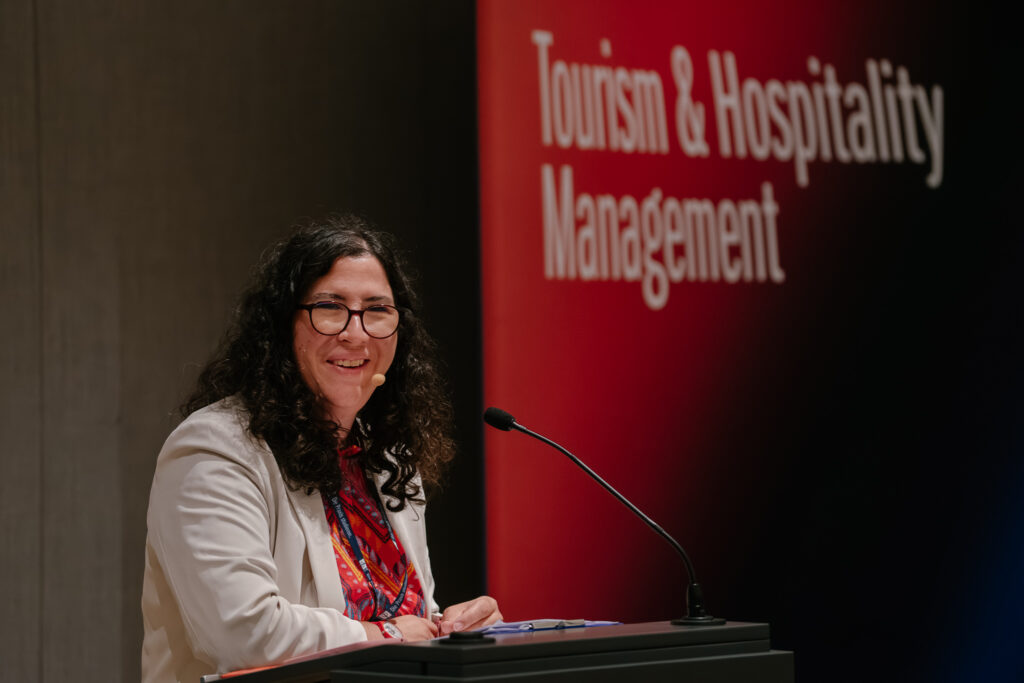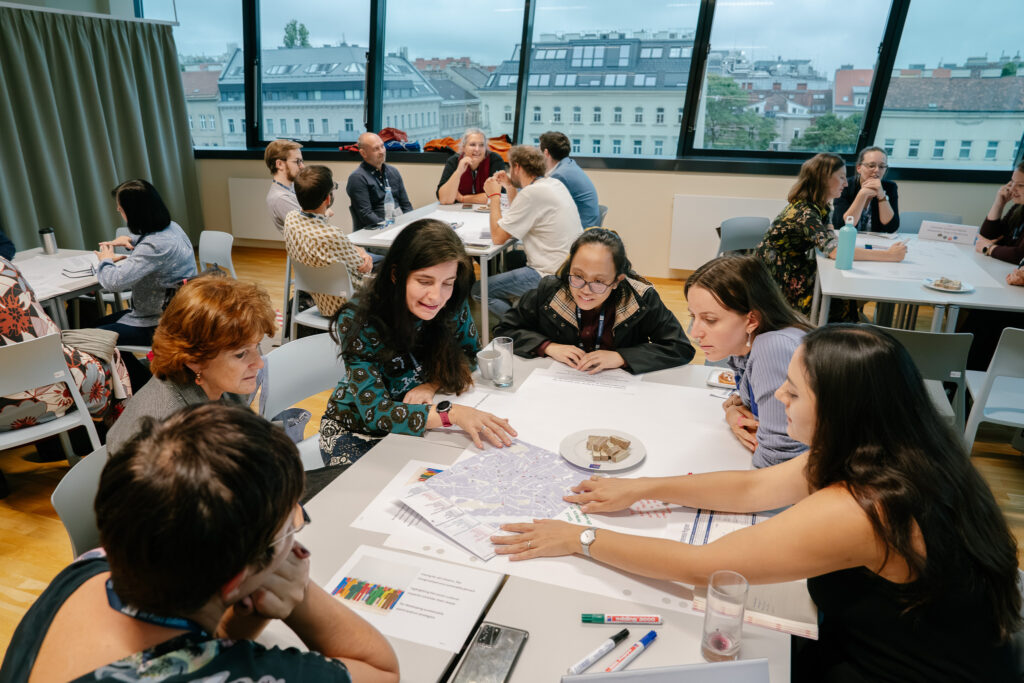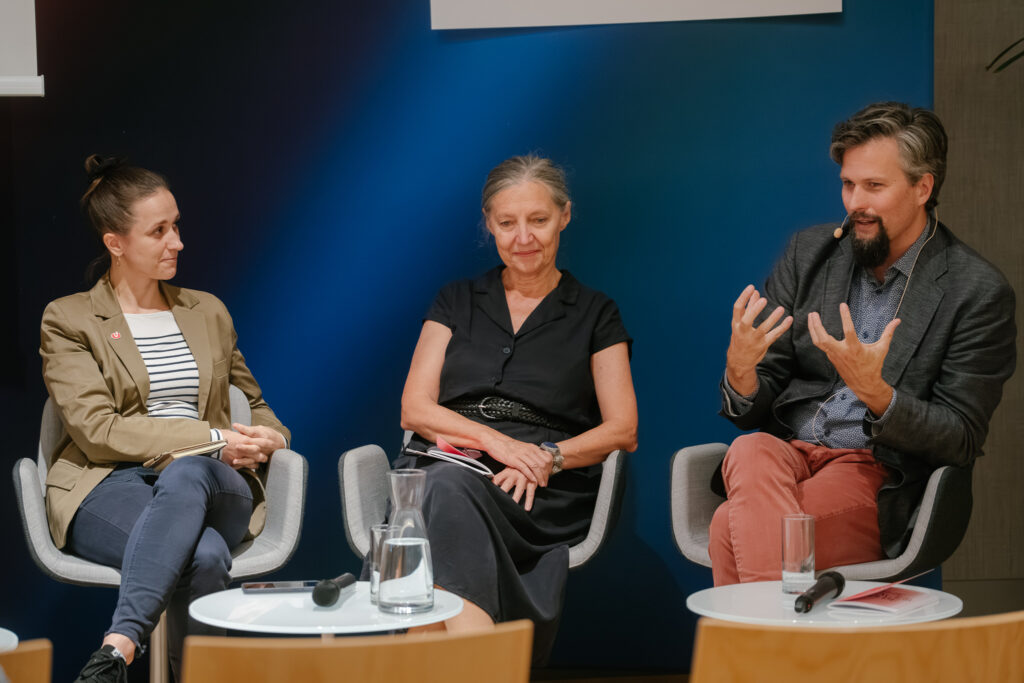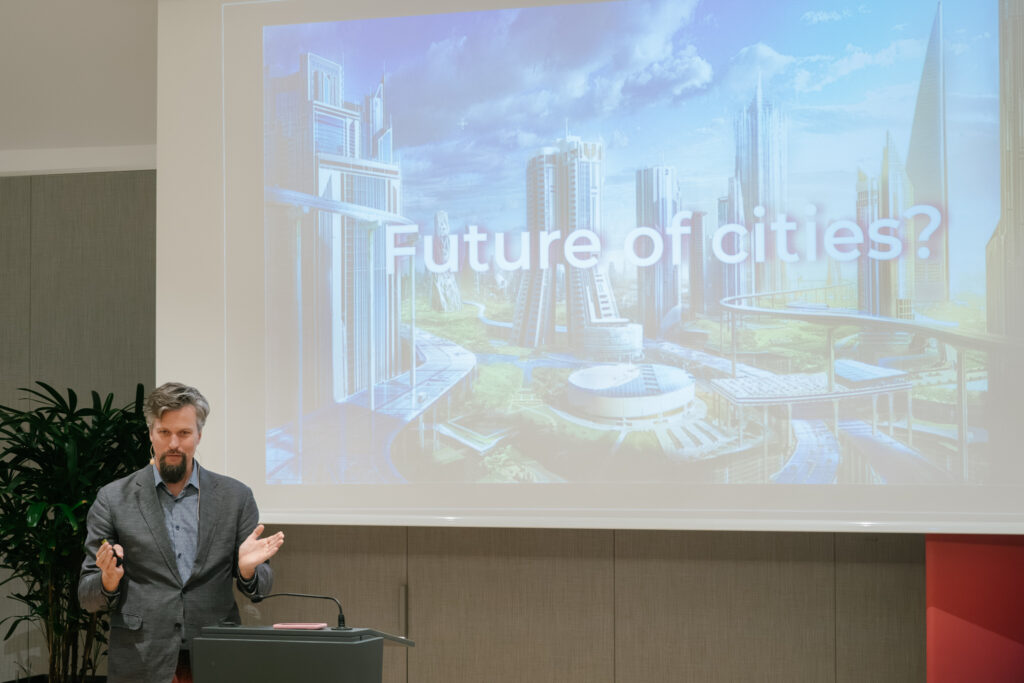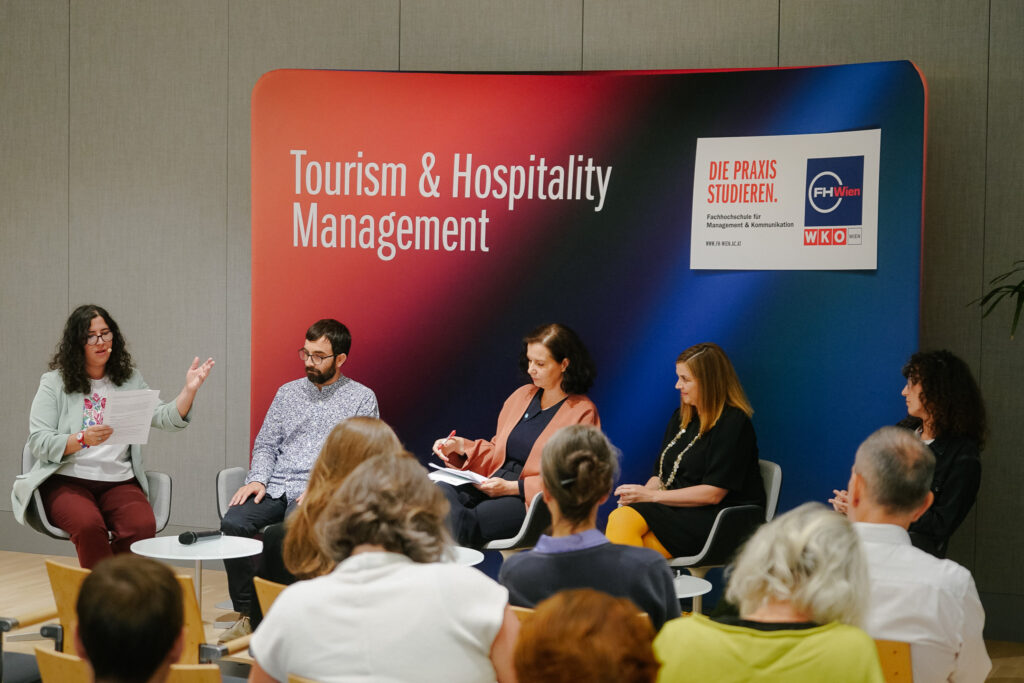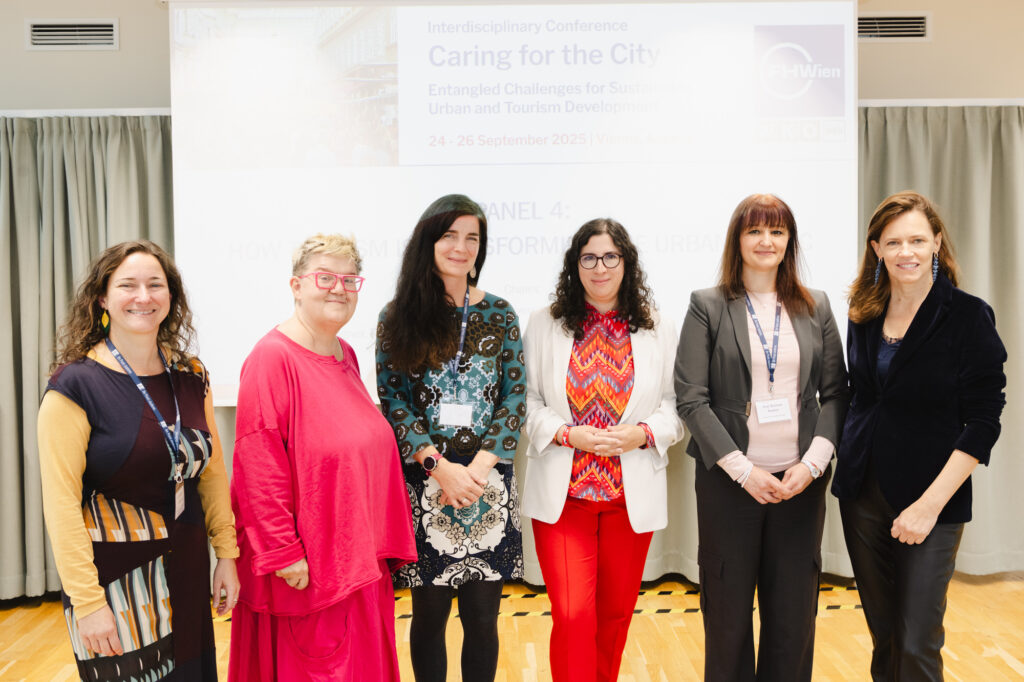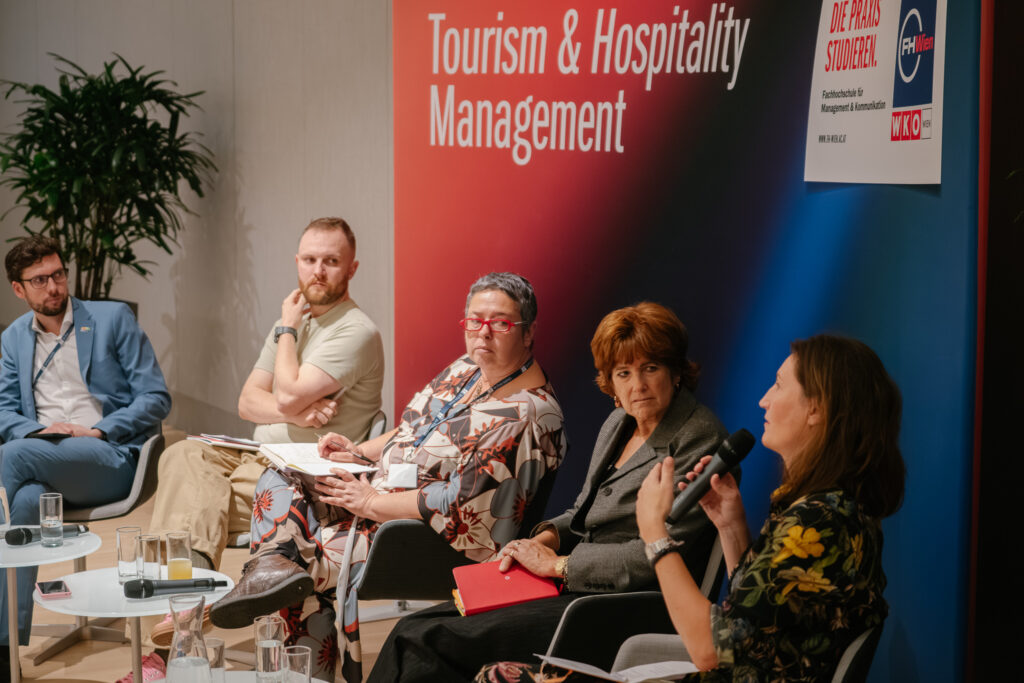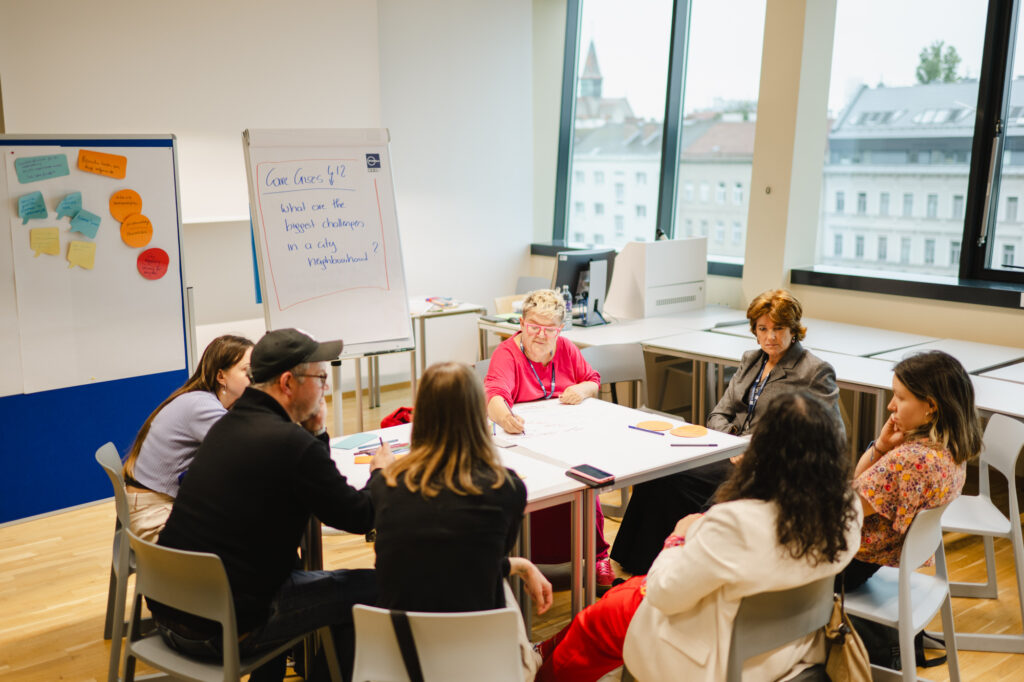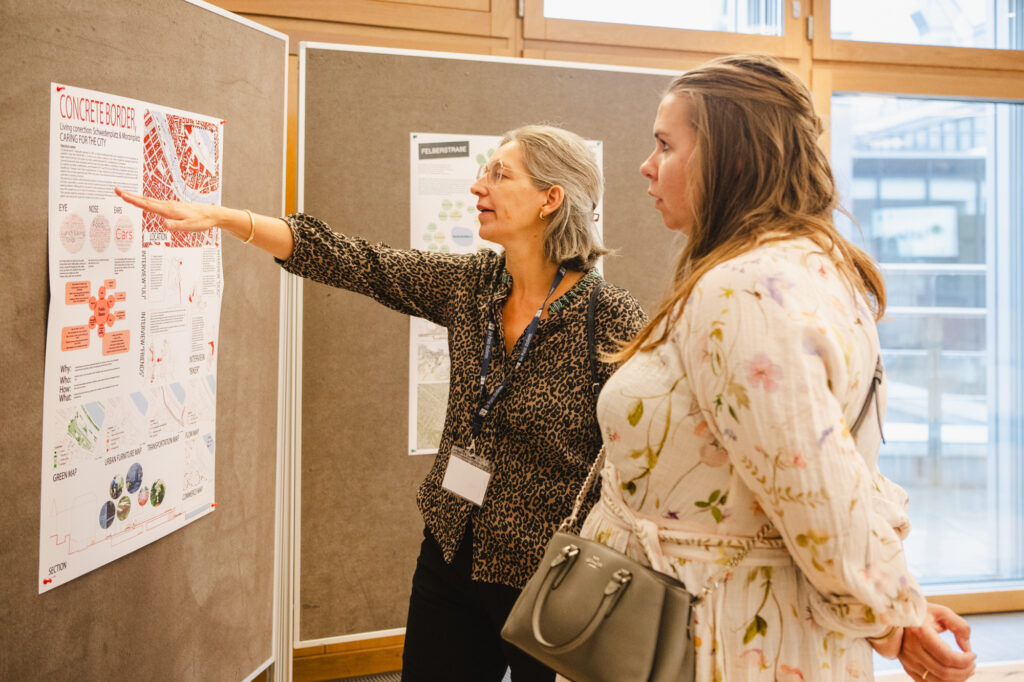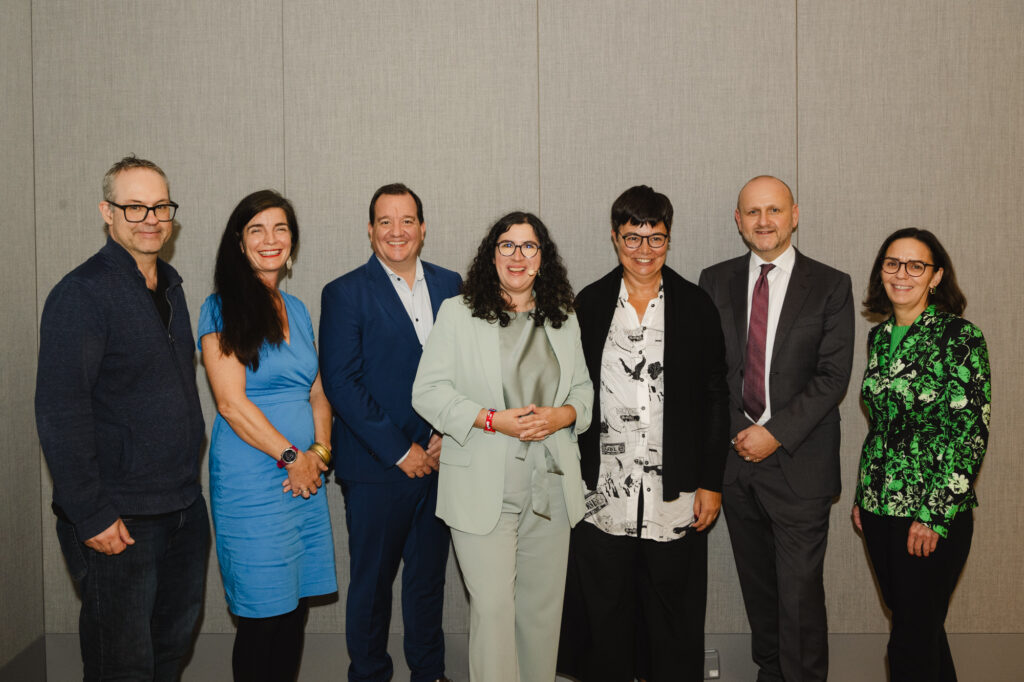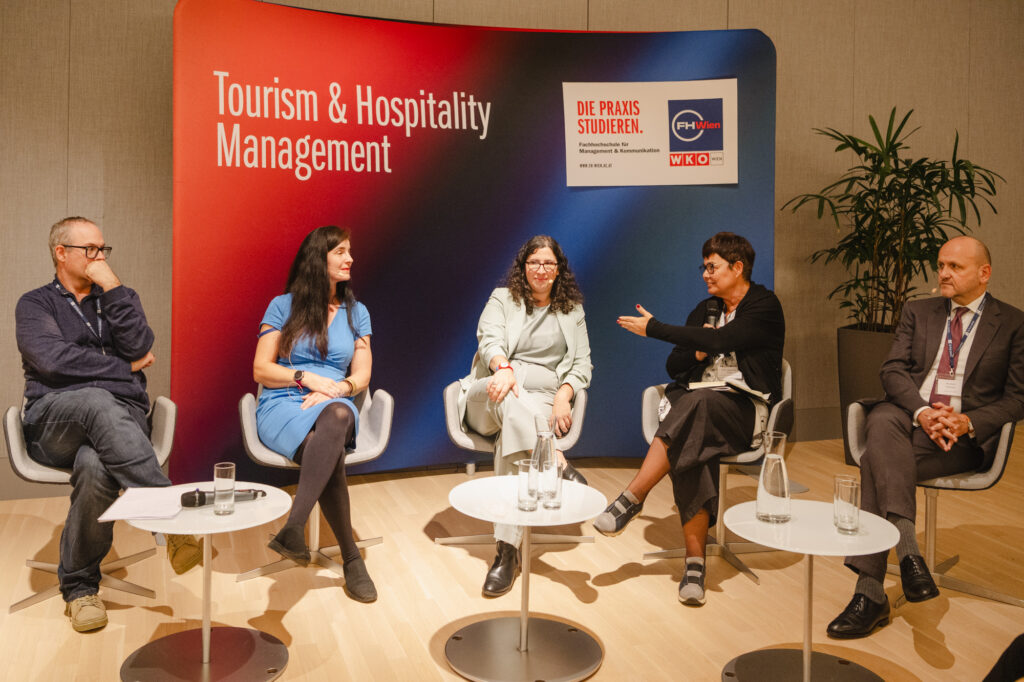From September 24 to 26, 2025, FHWien der WKW hosted the international symposium Caring for the City. For three days, the focus was on how urban and tourism development can be made inclusive and sustainable across sectors. The conference brought together experts from research, administration, planning, and practice to discuss new forms of sustainable urban design and tourism, focusing on the concept of “caring”—mindfulness toward neighborhoods, residents, and city districts.
A Kick-off Event in the Spirit of the Caring City
The conference opened with a keynote dialogue entitled Caring for the City in times of multiple crises and transformation. Following introductory short keynotes by Cornelia Dlabaja (FHWien der WKW), Norbert Kettner (Vienna Tourism) and Julia Girardi-Hoog (City of Vienna), a lively discussion developed on the challenges of urban transformation. Moderated by Wojciech Czaja, international experts such as Alexandra Paio from ISCTE University in Lisbon and Christoph Stoik from the Austrian Sociological Association discussed strategies for making cities more resilient. They addressed the question of how urban spaces can remain livable for residents in times of multiple crises while also responding to the changing demands of tourism.
Interdisciplinary Perspectives on Cities and Tourism
Several round tables highlighted the importance of interdisciplinary approaches for the future of urban and tourism development. In the first round table, entitled Rethinking Regional Development and Tourism, representatives from academia, politics, and practice discussed new ways of managing tourism and regional development. It became clear that sustainable tourism strategies are increasingly dependent on cooperation and long-term perspectives.
The second round table focused on the topic of vacancy and inventory and addressed the question of how unused ground floor areas can be activated. Experts from urban planning and business presented examples of how these spaces can serve as catalysts for vibrant neighborhoods, local economies, and social meeting places. The discussion made it clear that vacancy management is not only a planning task, but also a social one that requires active engagement and creative solutions.
Placemaking as a Connecting Element
A particular highlight was the closing keynote speech by Ethan Kent, CEO of the international initiative PlacemakingX. Under the title “Placemaking in Tourism and Urban Development”, he spoke about the importance of public space as a driver of quality of life and social participation. In the subsequent discussion with Cornelia Dlabaja (FHWien der WKW), Patricia Davies from the Innere Stadt district council, Katharina Höftberger from UIV (Climate & Innovation Agency of the City of Vienna), and Giovanna Marconi from IUAV University of Venice, the discussion focused on how placemaking can act as a bridge between urban and tourism development. The central question was how places can be designed to benefit both residents and visitors alike.
What remains: inspiration and ideas from ‘Caring for the City’
The twelve panels at the conference identified several key principles for future-oriented urban and tourism development. It was repeatedly emphasized that caring approaches are an essential guiding principle for resilience and social sustainability. Urban transformations should be experimental, participatory, and small-scale to take local needs into account and promote social participation. The panels on tourism also made it clear that new forms of cooperation between urban planners, tourism organizations, and the population are necessary to avoid conflicts of use and create synergies.
Special attention was paid to the topics of short-term rentals, vacancy activation, and the closer integration of tourism and urban development strategies. In addition, the role of caring communities was highlighted, which can make a decisive contribution to livable cities through public welfare-oriented action and local engagement.
The Caring for the City symposium showed that the future of cities lies in cooperation—between disciplines, institutions, and people. Networking and exchange are particularly important in this context, and the conference saw itself as the first platform for this. When urban development is understood as a collective task that balances economic, ecological, and social interests, cities can become more resilient, equitable, and livable. Caring for the City therefore means not only taking responsibility, but also actively creating spaces where mindfulness and cohesion shape everyday urban life.
